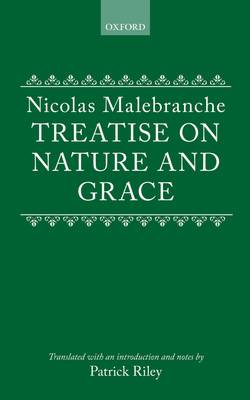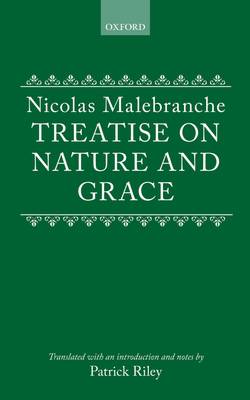
- Afhalen na 1 uur in een winkel met voorraad
- Gratis thuislevering in België vanaf € 30
- Ruim aanbod met 7 miljoen producten
- Afhalen na 1 uur in een winkel met voorraad
- Gratis thuislevering in België vanaf € 30
- Ruim aanbod met 7 miljoen producten
Zoeken
Omschrijving
Nicolas Malebranche (1638-1715) was the most important French philosopher between Descartes and Rousseau. His Treatise on Nature and Grace, first published in 1680, is one of the most celebrated and controversial works of seventeenth-century philosophical theology. This major text, last translated into English in 1695, is here made available to a new generation of readers in an entirely new translation, with a substantial scholarly introduction. The central argument, that God governs the realms of nature and of grace by simple, constant, and uniform "general wills," not through "particular providence," had fundamental repercussions within the contemporary debates on the nature of divine grace and of salvation, contradicting the claims of the Calvinists and Jansenists that God wills the individual salvation of an elected few. Hailed as a work of genius by Bayle and Leibniz, the Treatise was to have a profound and far-reaching influence on the development of eighteenth-century
thought.
thought.
Specificaties
Betrokkenen
- Auteur(s):
- Uitgeverij:
Inhoud
- Aantal bladzijden:
- 256
- Taal:
- Engels
Eigenschappen
- Productcode (EAN):
- 9780198248323
- Verschijningsdatum:
- 19/11/1992
- Uitvoering:
- Hardcover
- Formaat:
- Ongenaaid / garenloos gebonden
- Afmetingen:
- 143 mm x 222 mm
- Gewicht:
- 452 g

Alleen bij Standaard Boekhandel
+ 495 punten op je klantenkaart van Standaard Boekhandel
Beoordelingen
We publiceren alleen reviews die voldoen aan de voorwaarden voor reviews. Bekijk onze voorwaarden voor reviews.











